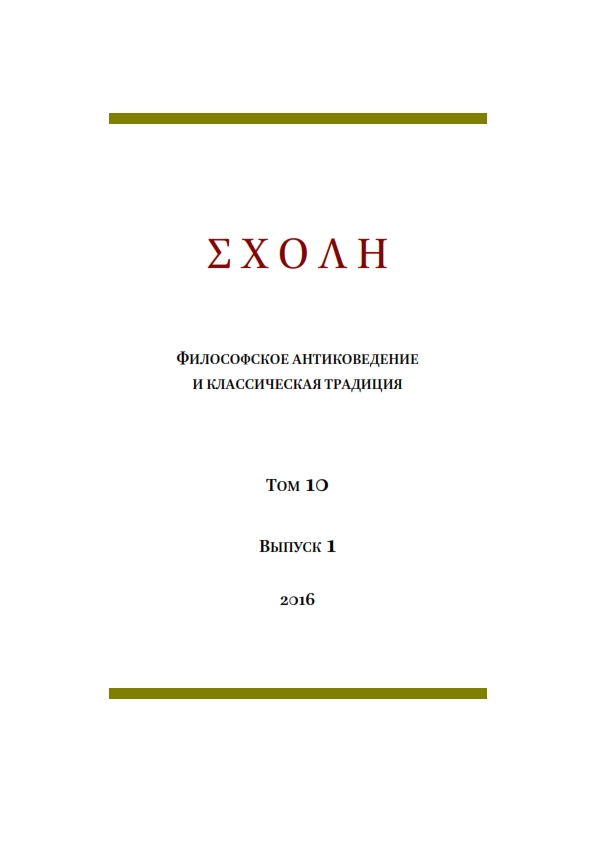АНАЛИЗ УЧЕНИЯ БОЭЦИЯ О ГИПОТЕТИЧЕСКИХ СИЛЛОГИЗМАХ В РАБОТАХ СОВРЕМЕННЫХ ИТАЛЬЯНСКИХ ИССЛЕДОВАТЕЛЕЙ
AN ANALYSIS OF THE BOETHIUS’ DOCTRINE OF HYPOTHETICAL SYLLOGISMS IN THE WORKS OF MODERN ITALIAN RESEARCHERS
Author(s): L. G. Tonoyan, Julia NikolaevaSubject(s): Logic, Ancient Philosphy, Philosophy of Language, Book-Review
Published by: Новосибирский государственный университет
Keywords: Boethius; L. Obertello; R. Pinzani; logic; the doctrine of hypothetical syllogisms; propositional logic; logic of predicates; Peripatetic logic; Stoic logic;
Summary/Abstract: In the article we review modern studies in Boethius’ treatise On the Hypothetical Syllogisms as exemplified by the works of Luca Obertello, Roberto Pinzani, Mauro Nasti de Vincentis and other historians of logic. We conclude that interpretation of R. Pinzani (2003) allows avoiding many difficulties encountered by the mathematical logicians during the analysis of the Boethius’ doctrine of hypothetical syllogism. Professor of the University of Parma R. Pinzani places high emphasis on the “philosophy of language” of Boethius, which precedes syllogistic calculations (it. calcolo sillogistico). Boethius sees no fundamental difference between categorical and hypothetical propositions as both are formed due to the properties of terms. R. Pinzani proves that both the hypothetical and categorical syllogistic work on the same structural grounds. Unlike other researchers, Pinzani applies in his analysis the apparatus of the contemporary logic of predicates and combines categorical and hypothetical syllogistic with the general theory of proof developed in the Analytics of Aristotle. This approach seems to be the most promising for understanding the logic of Boethius, developed in accordance with the Aristotelian logical system, and contrary to the Stoic one.
Journal: ΣΧΟΛΗ. Философское антиковедение и классическая традиция
- Issue Year: X/2016
- Issue No: 1
- Page Range: 335-346
- Page Count: 12
- Language: Russian

